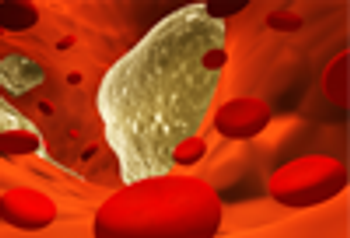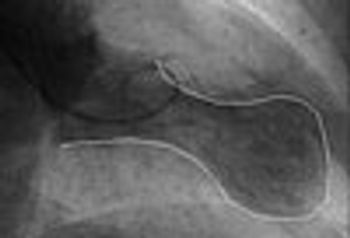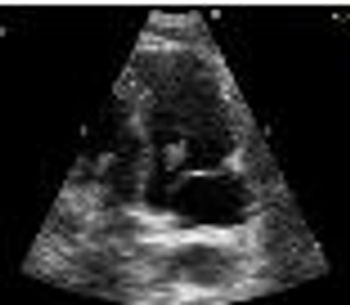
In 2000, MI was defined as any necrosis in the setting of myocardial ischemia. The 2007 update to this definition recognized that different conditions can lead to myocardial necrosis and 5 types of myocardial infarctions were defined.

In 2000, MI was defined as any necrosis in the setting of myocardial ischemia. The 2007 update to this definition recognized that different conditions can lead to myocardial necrosis and 5 types of myocardial infarctions were defined.

In patients deemed statin-intolerant, lifestyle changes and alternative classes of drugs should be pursued to lower LDL-C.

Omega-3 fatty acids used to treat patients with dysglycemia in the ORIGIN trial failed to reduce cardiovascular death or ischemic events. Follow-up was 6 years.

The popular media recently took a look at the connection between systemic inflammation and the many human diseases it’s responsible for. A lengthy article in the Wall Street Journal focused on the role of daily diet in the development and modulation of inflammation and noted the clinical use of biomarker C-reactive protein to measure inflammation levels. Harvard cardiologist Christopher Cannon offered tips on eating to beat inflammation and shed pounds at the same time from his new book titled The Complete Idiot’s Guide to the Anti-Inflammation Diet. Alarming health news paired with a new book on diet can create a perfect storm of questions from you patients.

Here: a summary of 10 actionable items written specifically for primary care practice to help combat hypercholesterolemia.

Ticagrelor is the newest P2Y12 inhibitor approved to treat patients with unstable angina or non-ST elevation myocardial infarction. AHA/ACC guideline update.

The key diagnostic considerations hypokalemia, periodic paralysis, and ischemia should lead the assessment of a patient with acute generalized weakness.

Novel anticoagulants (dabigatran, rivaroxaban, apixaban) are gaining wide acceptance over warfarin, for their simplicity of use and proven efficacy.

Statin medications were associated with significant tiredness and exertional fatigue in men and women without cardiovascular disease or diabetes.

Azithromycin has been linked to sudden cardiac death in patients with cardiovascular disease that require an antibiotic.

A genetic analysis questions the benefits of raising HDL-C levels to reduce the risk of MI and of the value of HDL-C as a surrogate marker of risk.

Use of aspirin in primary prevention of cardiovascular disease must be based on individual risk-benefit analysis and is not appropriate for patients at low risk.

Frequent coffee drinkers have a lower risk than those who drink little or no coffee, of death related to heart and respiratory disease, stroke, and infections.

The European Society of Cardiology just weighed in on the 3 new alternatives to warfarin for oral anticoagulation. The response is tempered enthusiasm.

High HDL levels track with low MI risk. But a Harvard medical geneticist tells why you may not be able to reduce that risk by intervening to raise them.

Also known as “broken-heart syndrome,” Takotsubo syndrome is a stress-induced cardiomyopathy.

Findings of the TIPS-2 study, announced at the recent 2012 World Congress of Cardiology, put the promise of the polypill-a simplified, one-size-fits-all approach to prevention of cardiovascular morbidity-back on the table for international discussion. Here, Dr Christopher Cannon puts the TIPS-2 results in perspective.

Are these findings another green light for dark chocolate? Some experts say “yes” as they also point to a recommended upper daily “dose.” What does this new research add to the current data on the health benefits of the flavinoid-rich sweet? Drs Payal Kohli and Christopher Cannon discuss study results and what you should tell your patients.


The Los Angeles county coroner’s office recently ruled that singer Whitney Houston drowned in her hotel bathtub but that other factors contributed to her demise. Did the 48-year-old have preexisting cardiovascular disease? Did cocaine abuse trigger a deadly cardiac event? Drs Payal Kohli and Christopher Cannon put the autopsy results and the pop star’s final moments in context.

Bariatric surgery nearly cures type 2 diabetes-at least that’s what results of a new study, presented at the recent ACC meeting, seem to imply.

It’s a known fact that regular consumption of red meat increases the risk of many chronic diseases-including diabetes, coronary heart disease, and cancer. Now, data from 2 large, long-term studies link daily consumption of red meat with death from cardiovascular disease and cancer. Drs Kohli and Cannon discuss what to tell your patients.

There’s a new way to lower LDL cholesterol levels-by approximately 60% to 80%. Studies unveiled at the 2012 ACC meeting found that an injectable monoclonal antibody, when added to statin therapy cuts LDL cholesterol levels far in excess of what can be achieved with statin therapy alone. Drs Christopher Cannon and Payal Kohli discuss.

Patients with type 2 diabetes should be receiving statin therapy, but many patients who would benefit from these agents are not taking them-and not reaching target lipid levels. A recent study shows that timing of statin initiation can make a difference. Here to put the issue into perspective are Drs Christopher Cannon and Payal Kohli.

Drinking sugar-sweetened beverages is known to cause weight gain and heightens the risk of type 2 diabetes mellitus. Here to put the issue into perspective are Drs Christopher Cannon and Payal Kohli.